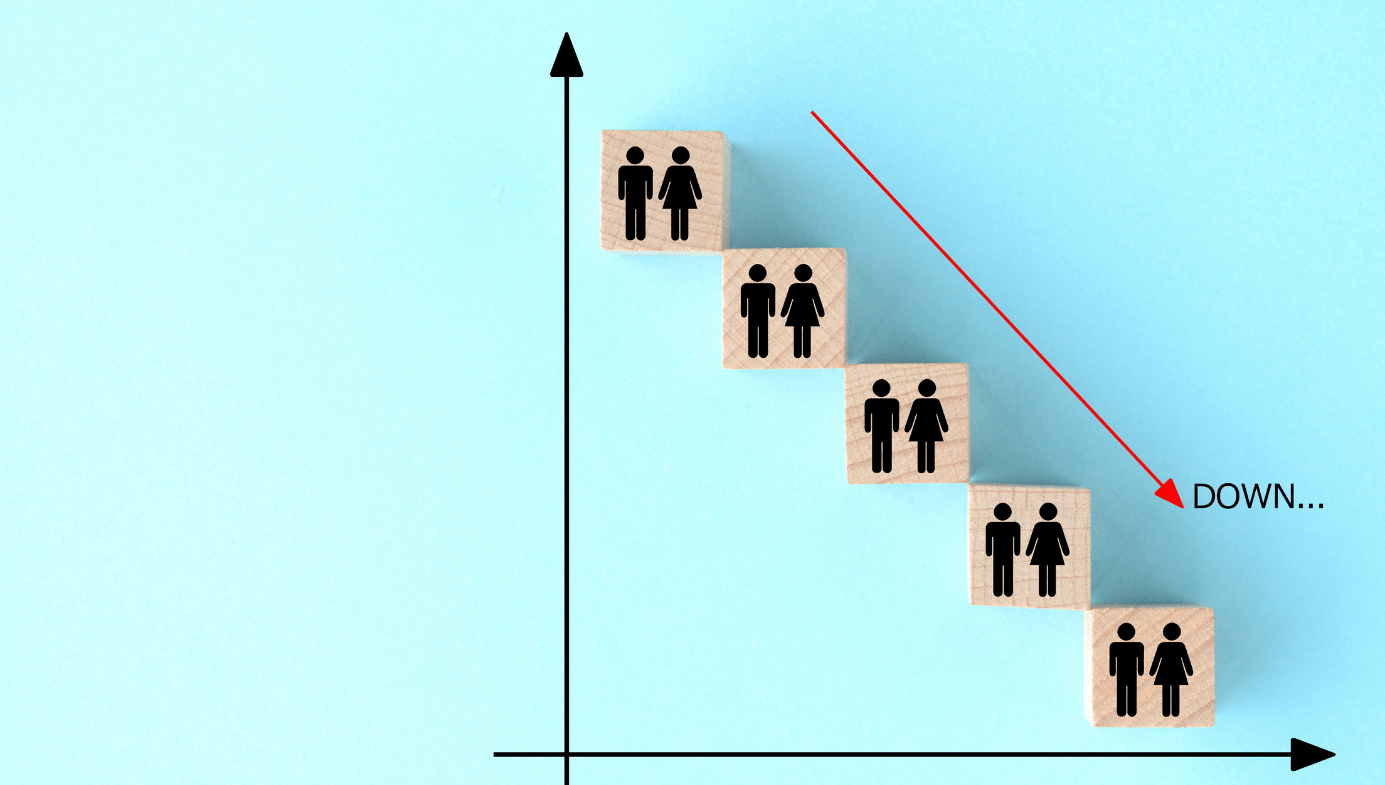progress
Forget About Overpopulation, Soon There Will Be Too Few Humans
The more people there are, the more solutions to problems will be found.

“Why don’t you mention the problem of overpopulation?” Whenever I give a talk about climate change and what to do about it, or about human progress during the past two centuries (or about any other topic, really), this is the one question that never fails to be asked during the Q&A. It is almost always meant to be a rhetorical one. The root cause of all our worries about climate and environment, or so the questioner believes, can be summarised in three words: too many people. Without addressing that root problem there can’t be any hope of a bright future. People beget more people, and before long you get an exponential growth curve that ends in disaster. A ticking time bomb. An explosion.
For the past few years, I have been the holder of a Chair at Ghent University dedicated in honour of Etienne Vermeersch, a Belgian philosopher renowned for many things but perhaps most notably for his early warnings about overpopulation and his advocacy for birth control. A few years before his untimely death in 2019, he expressed his “despair” at his failure to convince our political leaders to take overpopulation seriously.
Etienne was an intellectual hero of mine for whom I have huge respect, but this is the only thing about which he was dead wrong. Because there is no problem of overpopulation. In fact, before long, we will have to start worrying about underpopulation, caused by rapidly falling birth rates. It turns out that this is bad news not only for humanity but also for the planet, because more humans means more available resources and less destructive impact on nature.
Come again? More humans means more available resources? No, that’s not a typo.
First of all, some empirical facts. Global population growth peaked in the late 1960s, when the average woman had 4.5 children, and it has been declining ever since. In country after country, we have seen fertility rates take a nosedive after the death rate did the same thing. Global fertility today has fallen to about 2.3 births per woman, barely more than the replacement rate of 2.1 (the number you need to maintain a population). No country appears to be immune to this 'demographic transition', not even—despite popular misconceptions—traditional and religious societies.
Declining birth rates are driven by the same factors pretty much everywhere, regardless of cultural differences: higher incomes, better education for women, and access to contraception. As the Swedish physician Hans Rosling wrote: “Once parents see children survive, once the children are no longer needed for child labor, and once the women are educated [...], across cultures and religions both the men and the women instead start dreaming of having fewer, well-educated children.”

In demography today something like the following rule applies: birth rates are always falling faster than you think, even if you take into account that birth rates are falling faster than you think. Every time we take a closer look at a particular country or region, fertility figures turn out to be lower than expected. A few years ago, the U.N. still forecasted that the global population would peak around 11 billion at the end of this century, which was already a slower growth rate than represented by earlier predictions. But according to a 2020 study in The Lancet, we will never reach even 10 billion, and the global population will start shrinking as early as the 2060s. In Nigeria, the most populous country in Africa, the U.N. now forecasts a population of 350 million by 2100, which is 200 million less(!) than its estimate of ten years ago. In countries with the lowest fertility, the U.N. had assumed stabilisation around 1.75 children per woman, but that turns out to be too optimistic, as well (or too pessimistic, depending on your viewpoint). In countries such as Thailand, Greece, Italy, China, Japan, and many others, fertility rates have dipped below 1.5, and in South Korea they stand at a whopping 0.78.
Those who have long predicted a catastrophic population explosion, like Paul Ehrlich of The Population Bomb fame (who is now 91 years old), can now heave a sigh of relief. Except many of them will hardly be satisfied that we have averted the worst. Eight billion people, they’ll say, is already way too many. The celebrated primatologist Jane Goodall recently suggested that if she had a magic wand, the one thing she would do would be to (painlessly and mercifully) reduce the number of people on the planet. By how much, exactly? By about 95 percent, she suggested elsewhere—back to where we were 500 years ago. (If I had a magic wand, I’d just eliminate poverty and hunger rather than eliminate people, but let’s move on.)
Now, Goodall’s is a pretty extreme proposal, but I think many people (even smart and caring people) share the intuition that many global problems would be solved if only there were fewer of us: resource depletion, food security, pollution, climate change, freshwater supply, war. Name any problem, and someone will blame it on overpopulation. These people will cheer on the falling fertility rates everywhere, and would like to speed up the decline if they could.
And yet, there are good reasons for thinking that precisely the opposite is true: the more people there are, the more solutions to problems will be found. Many predictions of population doom never materialised because they started from the misguided assumption that the impact of the average individual on the planet (in terms of food, resource use, pollution, and so on) has remained constant throughout history. But history belies that assumption at every turn. If we still lived like our hunter-gatherer ancestors, as Matt Ridley said in an interview published in 2009, we would have needed about 85 Earths to feed the planet’s population at that time (6 billion people). “If we’d gone on as early slash-and-burn farmers, we’d have needed a whole Earth, including all the oceans. If we’d gone on as 1950[s] organic farmers, we’d have needed 82 percent of the world’s land area for cultivation, as opposed to the 38 percent that we farm at the moment.” Ridley said this almost 15 years ago, but, amazingly, the figure is still 38 percent, despite a billion extra mouths to feed and enormous gains in welfare and calories consumed per person.






